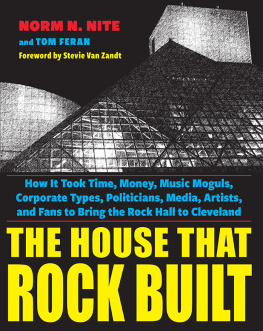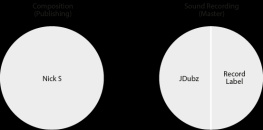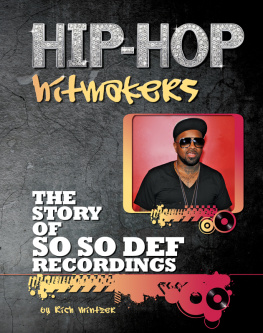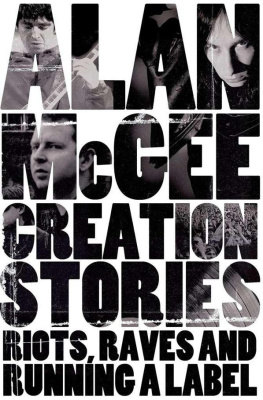MOONDOG
THE VIKING OF 6TH AVENUE


Moondog, The Viking of 6th Avenue, Revised Edition 2013 by Robert Scotto Remembering Moondog 2007 by Philip Glass
Thor, The Perpetual Calendar and The Song of Creation by Moondog 2007 by Ilona Sommer
This edition of Moondog, The Viking of 6th Avenue includes all the compositions included in the CD that appeared with the first edition of this book. Go to processmediainc.com for the free download of this music.
The publisher wishes to thank Philip Glass, Ilona Sommer, Steve Reich, Annabelle Lee and J.G. Thirlwell for their kind help with this book.
All Rights Reserved.
ISBN: 978-1-934170-41-0
10 9 8 7 6 5 4 3 2
Process Media
1240 W. Sims Way Suite 124
Port Townsend WA 98368
processmediainc.com
For further information about Process' titles, please consult
www.ProcessMediaInc.com.
Photograph of Moondogs helmet on page 23 by Lu Wu.
Design by Hedi El Kholti
Contents
by Philip Glass
An account of Louis Hardins childhood prior to his blindness; the various places he lived, his earliest proclivities and adventures; the family life that explains so many later developments will be explored.
The accident causing his blindness; Louis coping with his handicap; his discovery of his lifelong vocation of music; the dissolution of his family, his schooling, his first marriage, his growing independence, his decision to go to New York.
Louis first decade in New York; his association with the New York Philharmonic; his pen name, Moondog, in 1947; his cross-country trip; his earliest successes, his earliest music and records, his life-style and growing reputation; his second marriage.
His first albums, some on prestigious labels; the birth of his daughter; his court case with Alan Freed and WINS; the evolution of the man with the face of Christ; his ideas and opinions; his New Jersey and New York retreats; his separation.
The emergence of Moondog as a striking New York personality of the Sixties; the evolution of his dress, image, work and reputation.
The year of his Columbia album, with the attendant publicity and excitement.
The second Columbia album and its aftermath; his last cross-country tour; his final years in America at Candor prior to his trip to Germany.
His first year in Germany on the streets; after 1975, with Ilona Goebel, the foundation of Managarm (Moondog Management) Musikverlag; his earliest German albums and publications (The Creation, Thor the Nordoom and The Overtone Tree, among others).
His final concerts, albums and artistic ventures; his growing reputation in Europe; his final move; his death on Sept. 8, 1999 in Munster.
To Maddy and Mike
Fatti per seguir virtute e canoscenza

by Philip Glass
T he Village Voice had a piece about Moondog needing somewhere to live, so I trekked out to his usual spot, in front of the Warwick Hotel, at 54th and 6th and invited him to stay at the house I was living in with my wife JoAnne Akalaitis. A few weeks later I get a call from Moondog from a pay phone; he sounded cautious but says hed like to come check out the room.
I look out the window and the sight of Moondog crossing the street startled me. He was such an imposing figure, about six foot eight if you count his Viking headpiece, and he was so confident in his walk you wouldnt think he was blind. I wondered how, as a blind man, he managed to cross the street without an instant of hesitation until he showed me how he listened to the traffic lights; I had never heard them before in this way.
So heres Moondog at the front door, all stately and remarkable with horns on his head. I offer him our big room on our top floor. Moondog turns down the big room. He says he wants our small room, where he could stretch out his arms and feel the walls and ceiling. Thats what he was comfortable with, like what he would eventually do in his tiny house upstate. The way he later described his upstate home, it sounded like a spider or an octopus, with small arms or corridors reaching out from the center.
He ended up living with us for nearly a year. I thought he was terrific, fascinating and musically very interesting. We formed a music group, Moondog, Steve Reich, Jon Gibson and myself. For a time, we had weekly sessions playing Moondogs compositions. We took his work very seriously and understood and appreciated it much more than what we were exposed to at Juilliard. Steve recorded many of our sessions.
Moondog came from a true American tradition; he personified the maverick, solitary hero composer, like Nancarrow, Partch, Ives, and Ruggles. He really impressed me with his work, and that he could play all of his music. Once he gave me a gift of a big composition with 37 parts. I still have the music.
I was particularly interested in the way Moondog could work lyrically with odd rhythms; in a way it wasnt dissimilar from what I was doing at the time with Ravi Shankar. Moondog was quite interested in our work, too, and seemed to appreciate that we were also finding our own voices compositionally.
When he lived with us, Moondog was very connected to jazz. Hed stand in the stairway to the jazz club, Birdland, and play along with anything they were playing inside the club. I was amazed at his facility for doing this, and the way he could make music of found sounds. I remember him standing on the roof overlooking the Hudson River, and when the Queen Elizabeth ship pulled into port blowing its horn, Moondog would toot along with it on his bamboo flute.
As amazing as he was, he was a difficult guy, and a bit of a racist, too. He spoke of not liking black or Jewish people. He asked me whether I was Jewish, and I said I was. He then wondered why this happened to him, why all his best friends happened to be Jewish and black. He seemed genuinely sad and confused by this unfortunate circumstance.
Though he spent a year with us, I gave him lots of privacy. Before he moved to Germany, it did become uncomfortable at times. It seemed that he felt entitled to grab hold of any woman he could. He told me, I cant be prosecuted for rape because they cant do that to blind people. Another uncomfortable thing about living with Moondog was that he didnt pick up after himself or know how or bother to throw out the trash, so I spent some time cleaning up the fast food he brought to his room, like empty boxes from Dunkin Donuts and half-eaten bones from Kentucky Fried Chicken.
I only saw him once after he moved to Germany. He came back once more to visit New York and we had a great dinner together at my home in the East Village.
Moondog lived a life of tremendous courage and discipline; he was an admirable, unique person and a personal inspiration.
M oondogs incredible life was not only interesting, but also instructive, in many ways as much a cautionary tale as an adventure. Many remember him as the Viking of Sixth Avenue during the Sixties, a true eccentric in a city famous for every imaginable form of anti-hero and bohemian: his broadsides against government, the monetary system and established religionscoupled with his unconventional modes of dress in juxtaposition to his serious devotion to musicbrought him both fame and notoriety. He appeared often in the media and was scrutinized from a variety of viewpoints: he was, in short, a sort of celebrity against the grain at a time when an anti-establishment stance had great appeal.
Next page










